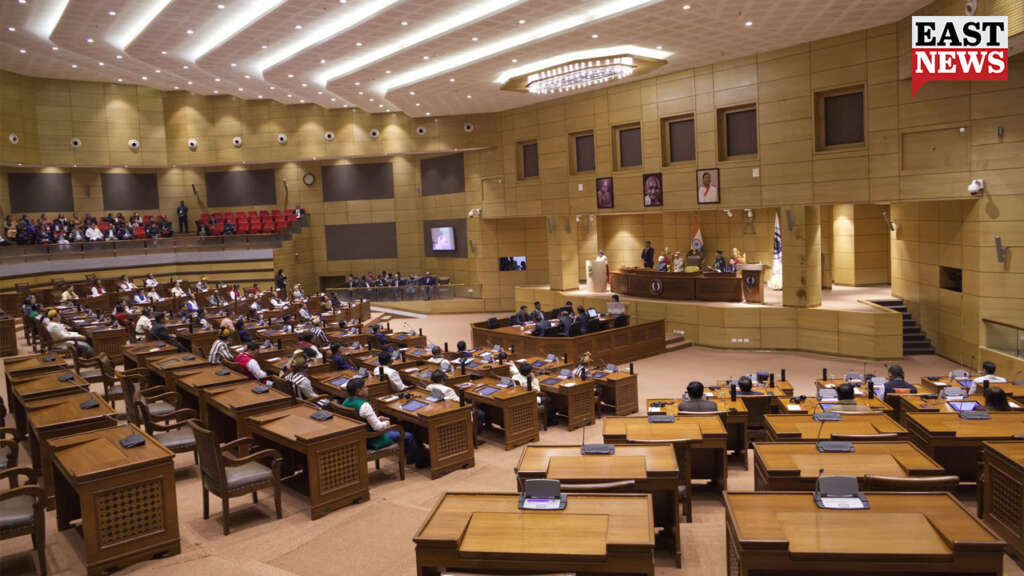President of India, Smt Droupadi Murmu addressed the special session of Arunachal Pradesh Legislative Assembly at Itanagar on Tuesday.
Speaking on the occasion, the President said that discipline and decorum are the hallmarks of the parliamentary system. We must ensure that the content and quality of the debate is of the highest standard. At the same time, we need to build a consensus on the issues of development and public welfare.
She was happy to note that Arunachal Pradesh Legislative Assembly has maintained the highest standards of parliamentary democracy. She appreciated the present and former members of the Assembly for maintaining the utmost regard for a healthy democracy.
The President said that in today’s era, environment pollution and climate change are critical issues. We have to find solutions to these concerns quickly. These matters become more important for a geographically sensitive state like Arunachal Pradesh. She was happy to note that the policymakers of this state have taken care of this issue.
She said that Arunachal Pradesh has resolved to show commitment to climate change through the Pakke Declaration. She expressed hope that other states would also move towards adopting this model to tackle the issue of climate change.
The President appreciated the Arunachal Pradesh Legislative Assembly for implementing the ‘e-Vidhan’ – paperless digital journey – under the ‘Digital India’ program. She noted that the State Government has declared the year 2022 as the ‘Year of E-Governance’ and has launched several E-Governance projects. She expressed confidence that these projects would not only help in administrative reforms but also contribute in making life easier for the common citizen.
The President was happy to note that the access to the Assembly Library is available free of cost to the students of schools, colleges and universities. She also noted that under the ‘Know Your Assembly’ initiative, this Assembly invites students from time to time to acquaint them with the legislative functioning. She expressed confidence that the young generation would take advantage of these facilities and contribute to the progress of the country and the state.
The President said that a vibrant system of self-governance and grassroots democracy has existed on the land of Arunachal Pradesh for centuries. The people of this state have actively participated in the modern democratic process as well, which reflect their political consciousness and faith in democracy.
She said that citizens expect from people’s representatives that they would always strive for the development of the state and public welfare. As the apex policymakers of the state, the members of Assembly have a vital role in the development of the state.
The President said that for the overall and inclusive development of our country, there should be more participation of women in every field of work.The participation of women should increase in all the state assemblies including the Arunachal Pradesh Legislative Assembly as well as in other institutions of people’s representation.
The President said that Arunachal Pradesh is an important part of India and a major stakeholder in India’s Act East Policy. The North-Eastern Region has long been deprived of the benefits of economic development due to lack of road, rail and air connectivity. But the Union Government is giving top priority to the connectivity and development in the North-East. She was happy to note that the sun of development is shining in Arunachal Pradesh. She said that with rich natural resources and quality human resources, Arunachal Pradesh has full potential to become an attractive investment destination and a hub of trade and business.
The President said that to ensure that the people of this region keep moving forward on the path of development without being cut off from their roots, we need to lay emphasis on preserving and promoting the tradition, culture and valuesof the region. As the people’s representative of Arunachal Pradesh, members of this Assembly have a critical role to play in promoting social change while preserving the richness of the state’s cultural values and traditions.

